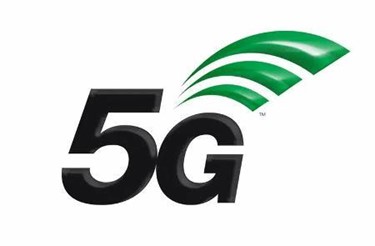The Week In 5G: 1/5/2018 - Verizon Taps Samsung For 5G Debut, AT&T Readies True 5G Network, Winter Olympics To Showcase 5G
By Jof Enriquez, Follow me on Twitter @jofenriq

Major U.S. carriers made a slew of announcements involving their ambitious 5G rollouts for the new year. Verizon said it has chosen Samsung to supply it with pre-standard 5G equipment for its first 5G service in Sacramento, sometime during the latter half of 2018. AT&T said it is targeting the end of 2018 for the launch of its first true 5G network. Meanwhile, T-Mobile announced that is working with Intel and Nokia on trials ahead of commercial 5G services by 2020.
For Verizon's first commercial 5G service, Samsung said it will provide Verizon with commercial 5G home routers (CPEs), 5G Radio Access Units (RAN) composed of a compact radio base station and virtualized RAN elements, as well as 5G radio frequency planning services.
Verizon and Samsung had partnered in 5G trials early last year in seven markets around the U.S., and test results have confirmed that environmental factors like rain and snow have not interrupted broadband service over the mmWave spectrum. Satisfactory results were likewise gained under line of sight, partial line of sight, and even non-line of sight conditions. Tests also revealed that a single 5G radio was able to reach the 19th floor of a multi-dwelling unit (MDU).
“The industry has been discussing 5G connectivity for years, and through our joint collaboration with partners like Samsung, we are beginning to make it a reality for our customers,” said Ed Chan, Chief Technology Architect and Network Planning, Verizon. “Sacramento is an ideal place to begin deploying 5G broadband services, providing a progressive environment for creating future use cases.”
Two weeks ago, Verizon also announced an agreement with Ericsson for the latter to supply it with 5G Core network, 5G Radio Access Network (RAN), transport, and associated services, for its 5G network based on 3GPP 5G NR standards. The markets for that deal were not specified, although Verizon earlier announced plans to roll out 5G broadband services in up to five U.S. markets in 2018.
According to SDxCentral, both Samsung and Ericsson are members of Verizon’s 5G Technology Forum, which was formed to provide input on Verizon’s 5G specifications. Other members include Cisco, Intel, LG, Nokia, and Qualcomm.
AT&T is also targeting the end of 2018 for its true 5G network in a dozen U.S. markets based on 3GPP 5G NR standards. Since last year, the carrier had been marketing a so-called “5G Evolution” network that is actually a rebranding of existing LTE technologies. This time, it looks like AT&T is going for the real deal, although it did not specify speeds it will offer, actual launch date of the 5G network, what devices will work with it, or the names of the 12 markets, reported The Verge.
AT&T still is aggressively expanding “5G Evolution” to hundreds of markets this year, and it is likely that its upcoming real 5G network will co-exist alongside this "souped up 4G" for a while, said Engadget.
Meanwhile, Sprint and T-Mobile have committed to having their respective commercial 5G networks up and running by 2019.
This week, T-Mobile said it was working with Nokia and Intel on an on-air, real-world testing of a mmWave 5G communications cell, operating at 28 GHz, as part of preparations for a full commercial deployment of its high-speed, low-latency mobile network by 2020.
T-Mobile is working on a plan that includes low, mid-range and mmWave technologies, according to eWeek. The carrier is reported to be using its newly acquired 600 MHz band, won in the FCC spectrum auction last spring, to deploy much of its mobile capability. That frequency is claimed to be superior in long-distance coverage and in building penetration.
Outside the U.S., Intel and Nokia have been busy bringing carriers up to speed with their 5G rollouts. In the Asia-Pacific region, both tech firms are participating in the world’s largest 5G showcase at the PyeongChang Winter Olympic Games in South Korea next month, according to Computer Weekly.
Korea Telecom reportedly will use Intel's 5G trial platform to provide spectators and businesses at the Games with wireless broadband at gigabit speeds, ultra-low latency video distribution and live-streamed immersive content. Nokia, on the other hand, is offering carriers with solutions to bridge existing 4G/LTE infrastructure and newer 5G technologies. The company said it hit a low latency rate of two milliseconds in a demonstration with SK Telecom. It also is collaborating with Singaporean telcos M1 and StarHub on 5G deployments, and is developing a 5G ecosystem with Japanese operator NTT Docomo.
